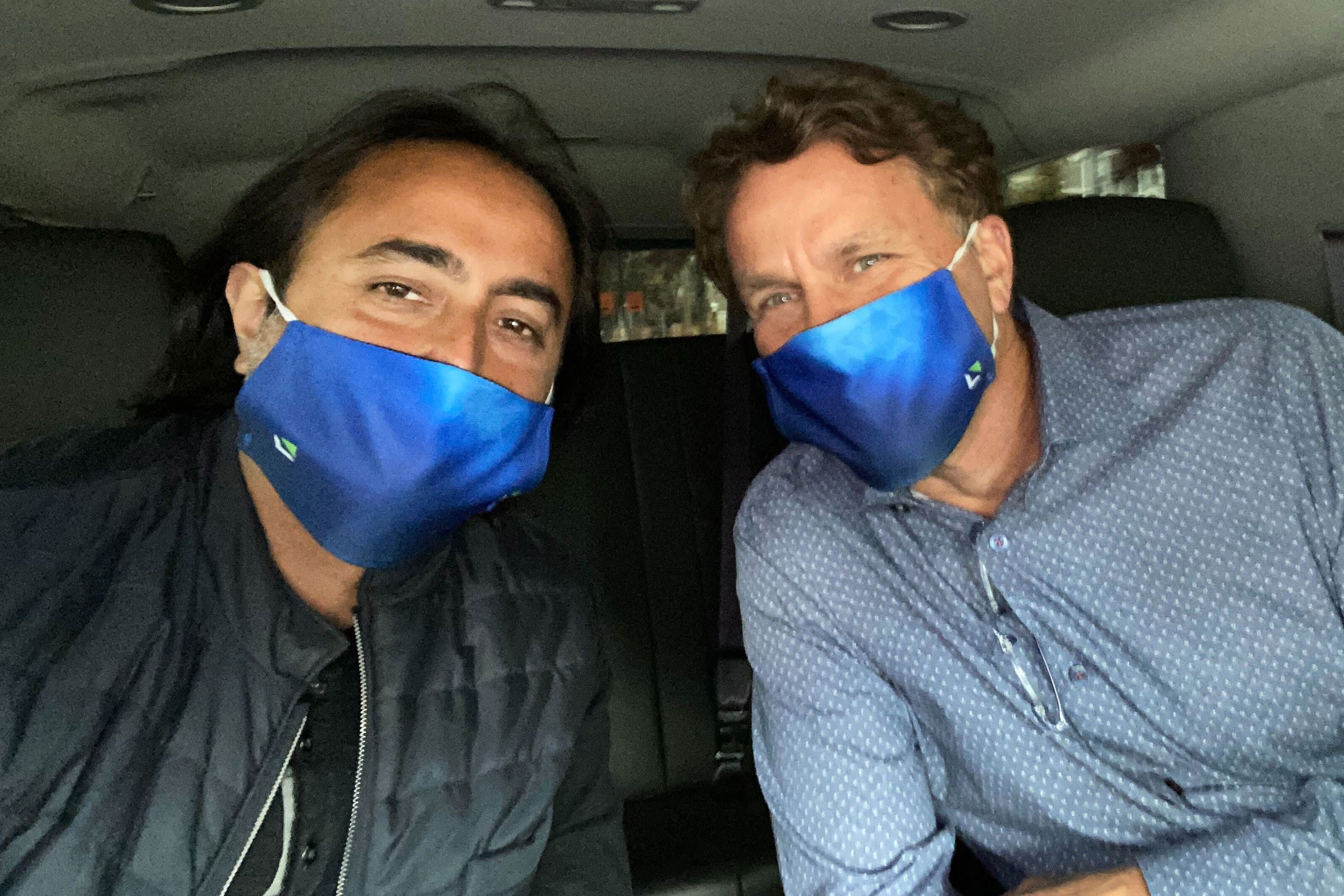Livongo’s founder and early investor on route to the meeting in Dallas.
Source: Hemant Teneja
The merger of Livongo and Teladoc, two of the largest publicly traded companies in digital health, came together in less than three months and played out against the backdrop of widespread lockdowns and quarantines of the coronavirus pandemic.
The deal, announced Wednesday, brought together two complementary players in a fast-growing market. Teladoc, which offers virtual physician consults for acute medical needs, had long planned to offer more services for patients with chronic ailments like diabetes. Livongo, which specializes in remote coaching for diabetes among other chronic conditions, had been likewise mulling a move into telehealth.
“Our two companies were either on a path of convergence or collision,” Teladoc’s CEO Jason Gorevic told CNBC.
But getting the deal done during a pandemic was a major logistical challenge that involved a series of late-night Zoom calls and one very socially distanced meeting in Detroit.
The two companies had been talking about a partnership for years. But talks accelerated about three months ago when Glen Tullman, Livongo’s executive chairman, went on a socially distanced walk in Chicago with Teladoc’s head of corporate development, Andrew Turitz. That sparked a phone call between Tullman and Teladoc’s CEO, Jason Gorevic, who had known each other personally for years.
Gorevic initially brought up the idea of a merger.
“I remember Jason calling us and saying, ‘You’re at scale, we’re at scale, so let’s put the companies together,'” recalled Tullman.
Tullman, whose company had been exploring other opportunities in the space, was intrigued. But it was a busy time for both companies, given the record numbers of people seeking virtual care during the pandemic. So they agreed to a series of late-night Zoom sessions to talk it over, which typically took place around 9pm.
Eventually, however, it became clear that they would need to meet.
The original plan was for the two executives — alongside Livongo boardmember Hemant Teneja — to rendezvous in Chicago. But shortly before the meeting, Governor Cuomo added Illinois to the list of restricted states, meaning Gorevic, a New Yorker, would have to quarantine for several weeks on his return home.
So instead, they settled on a hotel about forty-five minutes from the airport in Detroit — a midway point. They all agreed to take all the recommended precautions ahead of their meeting and wear masks on the flight.
Tullman even brought along masks branded with the Livongo’s logo, which he shared with Taneja.
Once they arrived at the hotel, they ordered delivery. No one shook hands, which felt a bit awkward, and they found their seats six feet apart on opposite sides of the room. To avoid exposure, they took it in turns to sanitize and touch the markers so they could draw on the white board.
At that hotel in Michigan several weeks ago, they ironed out the details of one of the biggest deals of 2020, as they sought to create $37 billion virtual health company, the largest of its kind to date. After a series of calls with their bankers, which often went on until the wee hours of the night, they were ready to announce the deal to the public.
A move to consolidation
For both companies, the timing was right for greater consolidation, and both execs both felt they were coming into it from a position of strength rather than weakness. Livongo and Teladoc had reported record growth in recent months, as consumers looked for alternatives to traditional brick and mortar medical care.
In Tullman’s mind, the move to virtual health care was inevitable, but the pandemic accelerated it by years. With consumers anxious about seeking care in person, they were finding alternatives in chatting with a provider by text, phone call or video, which helped Livongo and Teladoc attract new customers. Despite their philosophical alignments, Tullman says only about 25 percent of the two clients’ companies currently overlap.
Jason Gorevic, CEO, Teladoc
Scott Mlyn | CNBC
The deal also means that competitors will have to contend with a new digital health behemoth in the space, combining remote monitoring and telemedicine.
Still, experts say, the market opportunity might be big enough for everyone. On the telemedicine front, AmWell — one of Teladoc’s biggest competitors — recently filed for a confidential initial public offering after raising a $194 million round of financing. Omada Health, Livongo’s largest privately held competitor, recently acquired a virtual physical therapy company to expand its scope outside of diabetes and hypertension. All of that is fueled by demands from their customers: Health insurance plans and self-insured employers.
“There’s a growing buyer preference around simplicity,” noted Sean Duffy, Omada Health’s CEO, by phone.
Either way, investors say, it’s a major moment for digital health.
“It was a masterstroke of thinking about the future when we’re not in a Covid world and there’s a reversion to the mean, meaning more brick-and-mortar care,” said Michael Yang, a health-tech investor with Omers Ventures.
“So it’s a genius move for these companies to branch out now,” he said.
